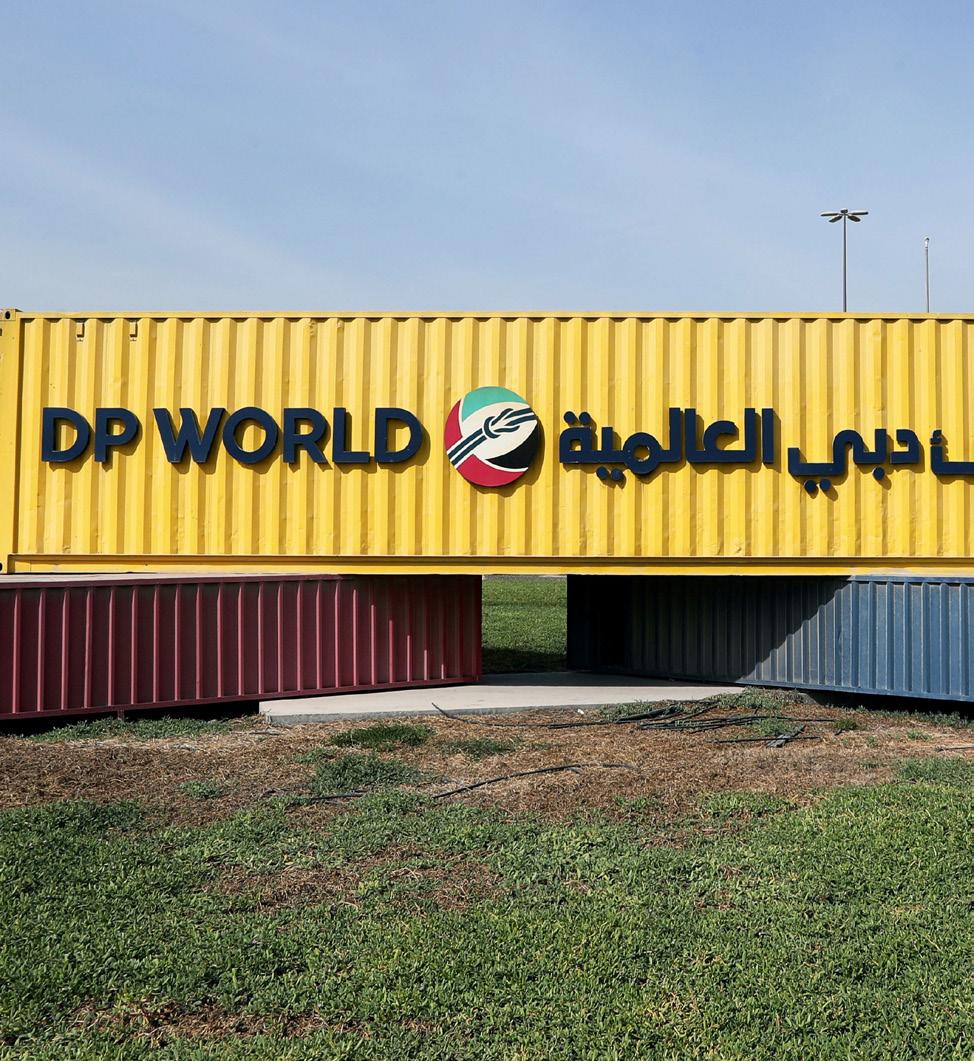
18 minute read
Kenya plans for future of Urban Air Mobility
DP World strengthens African business in H1 2021
DP World reported 7.5 percent growth in revenue in the Middle East, Europe and Africa regions to $3.1 billion during H1 2021, benefitting from the full contribution of the TIS terminals in Ukraine and the new port concession in Angola.
Advertisement
Profit after tax was up 11 percent to $877 million from $790 million during H1 2020, the company said while announcing strong financial results for the six months to June 30, 2021.
DP World invested $516 million in the regions, mainly focused on capacity expansions in UAE, Sokhna (Egypt), Berbera (Somaliland), and London Gateway (UK).
In the first half of 2021, the company invested $687 million in its existing portfolio, adding capacity in key markets and investing selectively in container port terminals that offer compelling value. The company started operations of the multipurpose terminal in Luanda, Angola, the fifth largest economy in Africa.
DP World’s existing operations in Dakar (Senegal) have seen solid growth in recent years with high utilisation rates and has announced a 50-year concession agreement and development of Ndayane terminal in Senegal. The new port will support Senegal’s development over the next century, and further reinforce Dakar’s role as a major logistics hub and gateway to West and North West Africa.
Capital expenditure guidance for 2021 is for approximately $1.2 billion with investments planned into UAE, Canada, Jeddah (Saudi Arabia), Berbera (Somaliland), Sokhna (Egypt), Luanda (Angola), P&O Ferries, London Gateway (UK) and Callao (Peru).
The company’s cash from operating activities remained strong at $1.5 billion compared to $1.1 billion in the same period last year.
DP World Group chairman and CEO, Sultan Ahmed Bin Sulayem, said, “We are delighted with the strong set of first half results with adjusted EBITDA growing 18.2 percent and attributable earnings rising 51.9 percent. In recent years, we have seen cargo owners respond positively to our integrated end-to-end product offering and we aim to continue with our drive to enable trade. Our recently announced acquisitions of Imperial Logistics and syncreon bring value-add capabilities in high growth verticals and markets, which will allow us to offer a more compelling set of supply chain solutions. DP World aims to lower inefficiencies and provide improved connectivity in fast growing trade lanes such as Asia, Middle East & Africa.”
The acquisition of Johannesburg-listed Imperial Logistics is part of DP World’s transformation into a logistics solutions provider. Imperial has a presence across 25 countries, including a significant footprint in the African market.
Both Imperial Logistics and syncreon bring complex solutions capability and strong long-term relationships with cargo owners that fit with DP World’s vision to provide smart, tech-led supply chain solutions to enable trade across key markets.
“Overall, the near-term outlook remains positive. While we are mindful that the Covid-19 pandemic and geopolitical uncertainty could once again disrupt the global economic recovery, we remain positive on the medium to long-term fundamentals of the industry and DP Worlds ability to continue to deliver sustainable returns,” Bin Sulayem added.
Market conditions in the Middle East, Europe and Africa regions were positive as volumes rebounded strongly. Consolidated throughput was up 15.9 percent excluding Jebel Ali (UAE), with Europe being the key driver of growth. However, Jebel Ali volumes turned positive with 3.4 percent growth in the first half as market conditions stabilised.
COMMUNITY & MOBILE SOLUTIONS FOR AIR CARGO OPERATORS
Since the launch of their first cargoclaims solution in 2015, awarded by IATA for cargo innovation, CargoHub Schiphol based IT provider has dedicate its efforts to developing digital products to make life better for Airlines, handlers, forwarders and truckers.
As the world struggles back to normality after the disastrous pandemic, air cargo operators are searching for solutions and technologies to make them more efficient and cost effective in a highly competitive global marketplace.

The CargoHub group based at Schiphol Airport, has developed a community platform over the past 3 years, offering an integrated number of useful digital products for just this very purpose.
Mr Raoul Paul
Raoul Paul founder of CargoHub explains “All our energy and research are directed at giving our customers the best tools for the job. Cloud based digital products that are easy to use, have been tried and tested here at Schiphol by leading handlers and carriers.
Single window eco system approach
Raoul continues “ We have built a cargo community platform to enable logistic stakeholders to share data amongst themselves, providing transparency and predictability on cargo shipments and truck movements. On top of this platform we have built- in community products which are focusing on Cargo Claim and loss prevention management. ULD care & control, Quality assurance and Airport collaborative decision making (CDM) which offers slot booking, digital acceptance / delivery and shipment status updates between truckers, airlines, handlers and forwarders.
“Our approach is to offer a wide range of products and to disclose data in a single window with the possibility to share data to any external system. This offers a maximum flexibility on how data is used or disclosed. We collect data and offer operational process supporting tools to offer the ultimate digital process efficiency for individual stakeholders.”
“Pushing digital transformation forward with innovative solutions”
Cargo Claims and loss prevention Program (CCLP)
In January this year a new CCLP program was introduced to simply and control the cargo damage reporting process between ground handlers and airlines. Raoul explains,” Traditionally, once damage to a consignment is caused or discovered, a report would be drawn up in Word or Excel or generated by a WMS system. The CCLP program offers handlers a simple to use mobile app to create, control, validate and (semi) automatically sent damage reports to the airline representatives involved in the stretch. In this way, the damage reporting requirements stipulated in the service level agreement with the airline are easily met. At the same time airlines are offered access to the CCLP platform to access the assigned reports enabling the carrier to swiftly anticipate to customer service requirements and to monitor shipment quality performance within their network.
“The fully customer centric focusses CCLP solution” continues Raoul, “identifies risks, provides loss prevention management insights to both the handling company and airline. Last but not least, it provides a fully integrated quality assurance program to investigate root cause and to classify corrective actions. This new solution has successfully been tested in Amsterdam by Menzies World Cargo and Airbridgecargo Airlines and will be made available to other handlers and carriers starting from 01-01-2022”.
ULD Care & Control
Raoul elaborates… “Our platform built in ULD care and control app is yet another useful solution for combatting another problem area for airlines,
SOLUTIONS TO S DOOR MANAGEMENWHYWHYCARGOHUB UPPORT THE QUALITY OF THE AIR C T ARGO PRODUCT
CARGO CLAIMS LOSS PREVENTION
Airline – Handlers – Forwarders - Shippers
INTEGRATED QUALITY MANAGEMENT SYSTEM
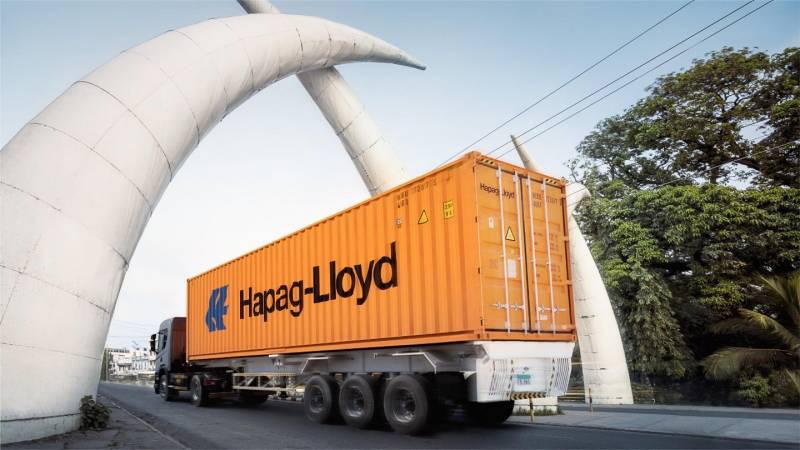
Airline – Handlers – Forwarders - Shippers
COLLABORATIVE DECISION MAKING (CDM)

Airline – Handlers – Forwarders - Shippers

handlers and forwarders. Unreliable registration combined with human error means that time and money are seeping away with damaged and lost containers cause delays and costs.There are some 800,000 ULDs currently in service worldwide and every year the industry spends $300m in ULD repair costs not counting damage to aircraft caused by broken or bent containers. Our ULD solution saves much of these daily problems. By re-using existing ULD messages in our eco system platform, forwarders are enabled to monitor their ULD on loan in a digital environment. The CargoHub ULD app at the same time offers a fully operational supporting solution to manage ULD’s during the acceptance and delivery process and allows airlines, ground handlers, GSA’s and forwarders to real time monitor the full ULD process. This new solution eliminates the administrative burden, unnecessary inquiries, which often requires forwarders to prove that ULD are already returned to the handler to prevent demurrage costs.
“To summarize - we offer easy to use business excellence supporting products”
“Logistics are in the need for easy to implement and to use products that contributes to efficiency and the quality of the cargo product” continues Raoul Paul, “ Our new CARGO SNAPSHOT platform add- on is a cloud based digital app for quality control covering acceptance, storage and delivery. The condition of shipments can be captured, is reported and the data is made available in the single window dashboard. Handlers for example can easily share data on damage shipments upon acceptance in the account of forwarders and forwarders collecting shipments at the handler can re-use captured snapshot data to inform the carrier about a potential damage to comply with possible cargo claims proceedings.
The loss prevention focus is also embedded in this solution to assure and contribute to the quality and service offered to shipper clients”.
Collaborative Decision Making at Airports
CargoHub is also known for its Trucking CDM platform, streamlining handling and trucking coordination. Raoul explains. “ Our system allows trucking companies and forwarder to digitally pre announce their arrival for pickups and deliveries to handle. This enables handlers to manage their capacity and available timeslots, status updates for cargo documentation. Customs and security status are shared in the transaction between forwarder, handler and airline to provide full transparency and predictability to reduce waiting hours, paperwork and traditional communication by phone and email to request shipment status updates.
Groundhandler dnata in Amsterdam successfully has eliminated a significant flow of email communication as a result of the CDM partnership of trucking companies Wallenborn and Jan de Rijk. Not only front yard control, loading times and driver validation can be improved but also the re-use of data increases the speed and quality of truck order processing at the handlers side. The advantages of digital transformation must be engineered throughout the whole process, in order to achieve maximum result, keeping end to end supply chain visibility and predictability for handler, trucker, airlines forwarders and shippers in mind. The cargo community needs to work together as one and our single window CDM solutions are all built just for this purpose.
Contact information CargoHub BV raoul.paul@cargohub.nl
Cash payments in Africa could boost vaccine uptake
Any global-health researcher can tell you that solving one problem at a time is not enough. As the COVID-19 pandemic surges in Africa, securing access to vaccines is the dominant focus.
But more must be done to ensure citizens will get them. The best option, in my view, is cash incentives.
There is a debate across the globe on how best to incentivize immunization. Regions of the United States have offered entry into prize lotteries, and even US$100 savings bonds. Uptake is particularly important in Africa.
Only about 1.4% of Africa’s 1.3 billion people have been fully vaccinated. Since the start of the year, cases have more than doubled, with Botswana, Namibia, South Africa and Tunisia reporting their highest jumps in cases since the pandemic began. Right now, the problem is vaccine availability. Rich countries have more vaccine than they need, and African countries have been left with only 2% of the total supply.
Outrage at this disparity (plus the potential for more-dangerous viral variants to evolve where infection rates are high) has prompted promises of one billion doses to poorer countries alongside other initiatives
and the ramping up of vaccine production.
Attention must now be paid to getting shots into arms. Already, vaccine hesitancy has cost Africa. Several African countries, including the Democratic Republic of the Congo, Malawi and South Sudan, have had to destroy or return vaccines because doses could not be used before their expiry date.
As chief economist at the African Development Bank in Abidjan, Côte d’Ivoire, and, before that, for the World Bank’s Middle East and North Africa Region, I have evaluated many programmes and studies on cash transfers. I know the idea is controversial. Some critics argue that all efforts should be focused on securing vaccines. Others counter that the capacity to implement a cashtransfer programme on this scale does not exist.
Still others say that offering cash incentives to people for behaviours that benefit them is ethically problematic, coercive or erosive of trust.
When I first heard of cash transfers, in a 2008 employment programme in Liberia, I was sceptical. But I have seen them used carefully and effectively. For instance, a programme targeting women of childbearing age in Nigeria significantly
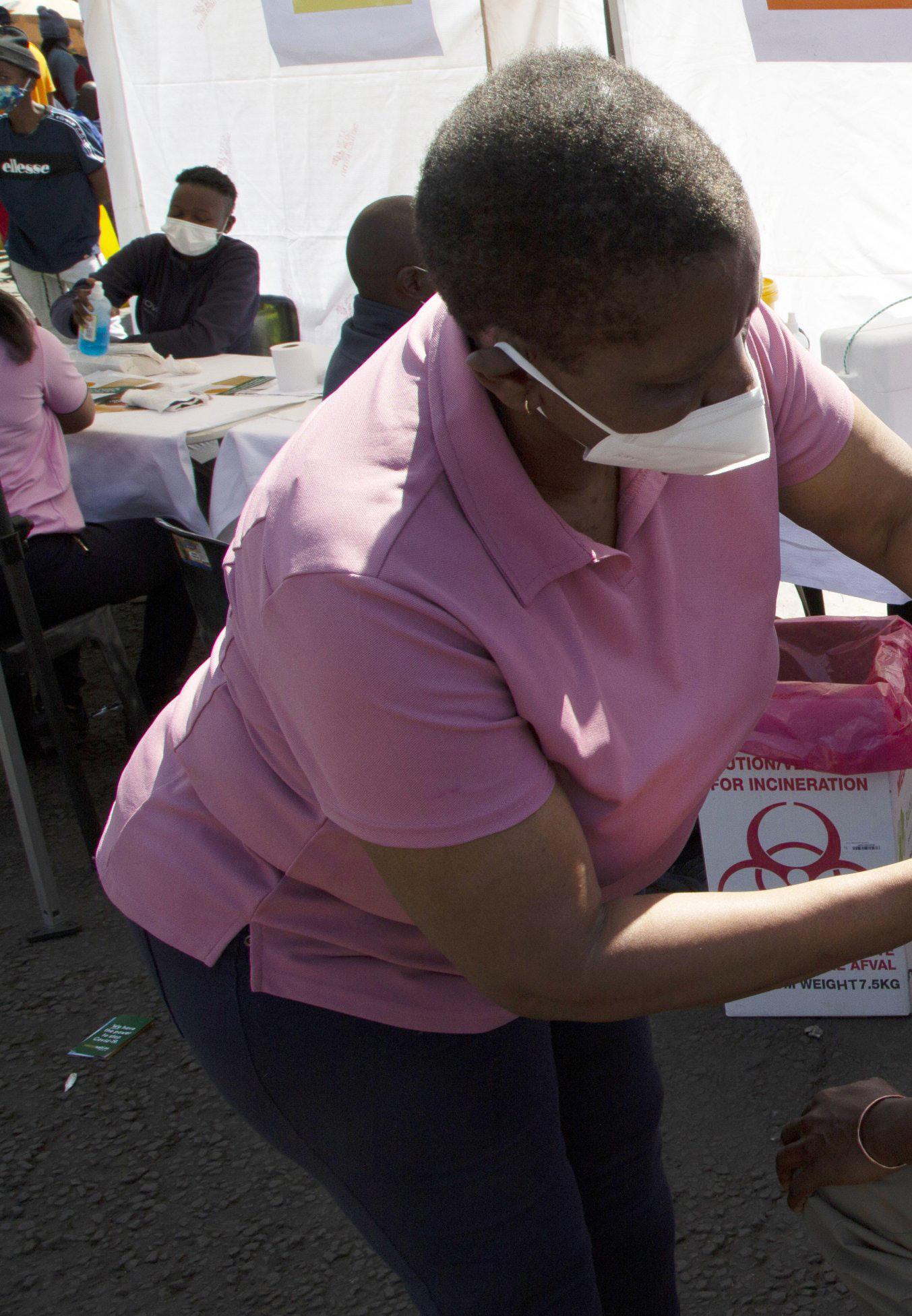
increased tetanus immunization.
These programmes encourage vaccine uptake even as logistical challenges such as maintaining the vaccines in cold storage and distributing them are managed.
That means that a cash-transfer programme would complement other ‘supply side’ efforts, including logistics, communication and community engagement. (Of course, cash transfers must be combined with other mechanisms, such as mobile clinics, to ensure that people who want vaccines can get them.)
In another example of their effectiveness, cash transfers to families in Indonesia for bringing children in for routine health care and enrolling them in school showed significant results, reducing stunted growth in children by up to 23%.
These programmes are so well established that they are being used to benchmark other interventions. Both development banks and non-governmental organizations (NGOs) have developed best practices for designing and implementing these programmes at scale, including targeting them to vulnerable communities.
I envisage a programme that would offer each individual eligible for vaccination in West African countries a payment for receiving the shot, say, 6,000 West African CFA francs (US$11). That amount is 10% of the monthly guaranteed minimum wage in Côte d’Ivoire.
In 2019, Africa received about $58 billion in foreign aid. I estimate that an effective cash payment would add some $9 billion to an estimated $15 billion for providing and administering COVID-19 vaccines across Africa. The bulk of the money would come after the second dose — or full payment be made at once in the case of one-shot vaccines. Funding would come from the world’s richest countries, foundations and corporations, particularly those with business interests in the continent.
This programme would reduce vaccine inequity, save lives and bolster hard-hit economies where the pandemic has plunged many into poverty.
The infrastructure to carry out such a payment programme is already in place: about half of Africans have mobile phones, and programmes designed around these have improved childhood vaccination rates in Bangladesh. By transferring money directly through mobile phones, authorities can better ensure that funds go to the intended recipient.
For those without a phone, beneficiaries would receive a voucher with a unique identifier that could be redeemed for cash. Again, there is precedent. During the Ebola crisis, a vast cashtransfer programme used many delivery methods, including direct payments to people in the most remote areas without mobile phones.
The vaccine-incentive fund could be administered by development banks working with public-health bodies, NGOs and telecom operators. Blockchain technology could record doses and payments, to ensure traceability and limit corruption. The technology to record doses has been put in place by airline corporations and British hospitals.
This would be a huge benefit for Africa, and would be in donors’ self-interest. Arresting the virus’s spread in Africa would both revive a major global market and reduce the chances of the virus mutating into more-dangerous forms.
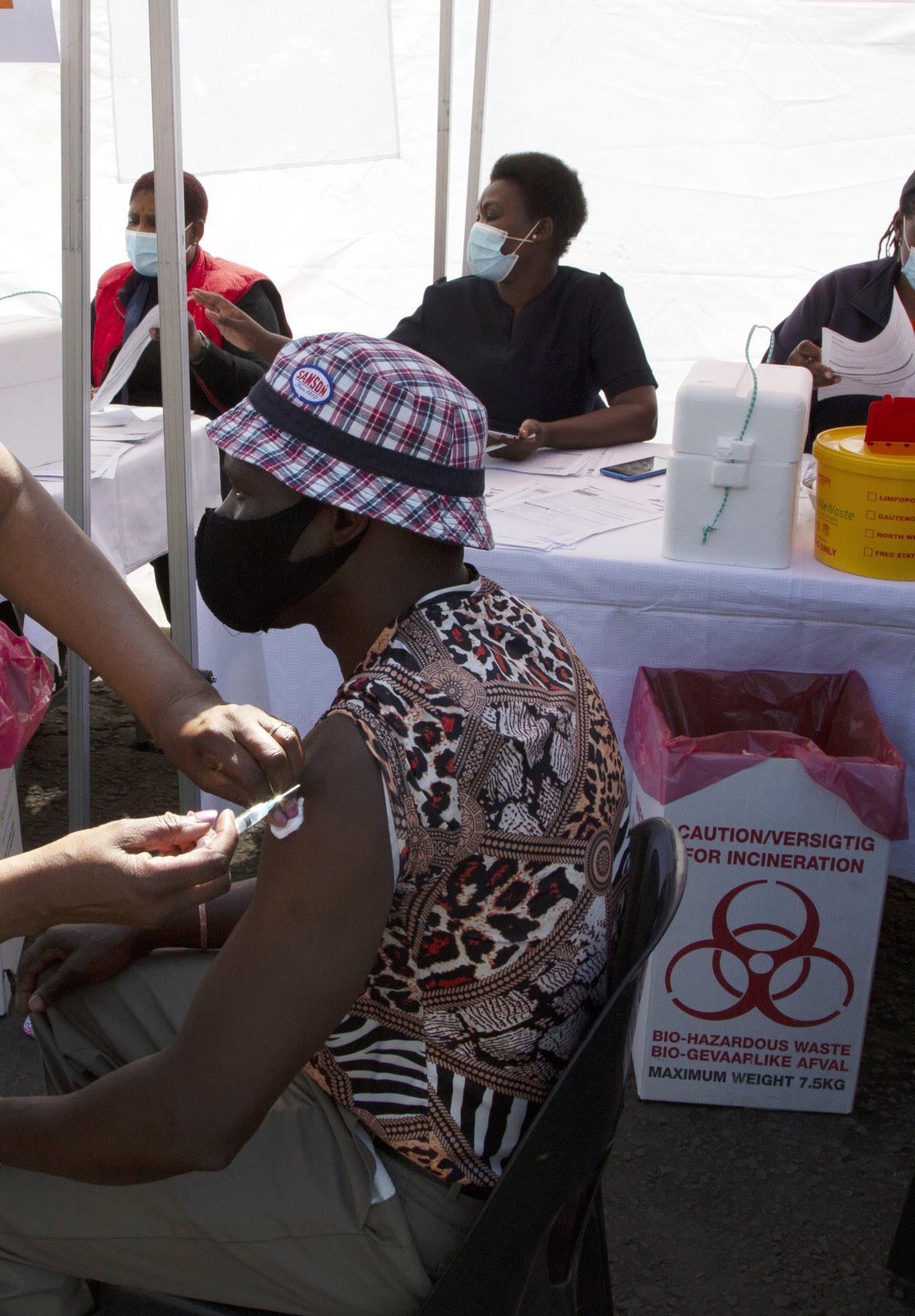
Mozambique Channel May Become the Next Maritime Security Hotspot
The waters off Mozambique are becoming a major new security hotspot in the Indian Ocean. An Islamist insurrection in northern Mozambique that the government seems powerless to suppress has also increasingly led to disruption in the Mozambique Channel, a key global shipping route.
The Quad countries and European partners must help contain the problem before other actors step into a regional vacuum.
The insurgency in Mozambique has the potential to destabilize Southern Africa and embolden Islamists throughout the region. It threatens security in the Mozambique Channel, the 1,000-nm long waterway between Madagascar and East Africa that carries some 30 percent of global tanker traffic. It is also the location of some of the world’s largest gas reserves.
The insurgency was started in 2017 by groups drawn from Muslim communities on the so-called “Swahili coast”. This has now included more than 800 separate attacks across northern Mozambique, resulting in at least 2600 deaths and more than 600,000 people displaced. A report from the UN SecretaryGeneral to the Security Council also pointed to transnational links, with Somali-based Islamists in Puntland acting as a “command center” for Mozambique insurgents. However, other analysts discount close operational links with Islamic State.
Armed clashes escalated sharply in 2020, with attacks spilling over the border into Tanzania, where the government faces local Islamist extremists. There are also growing attacks on maritime infrastructure. In August, insurgents seized a key port in northern Mozambique from government forces, raising concerns that this is a first step in insurgents venturing into piracy, as occurred in the Horn of Africa.
Maritime drug smuggling is a key source of funds for insurgents. The so-called “Smack Track” has long brought heroin grown in Afghanistan down the East African coast, where a substantial portion is now landed in northern Mozambique before being transported to Europe and elsewhere. Heroin is also increasingly supplemented by crystal meth, produced in Afghanistan from local shrubs.
Map reproduced with the permission of CartoGIS Services, Scholarly Information Services, The Australian National University
Another big factor is the development of a major offshore gas industry in the Mozambique Channel off northern Mozambique. This involves planned investments of some US$50 billion to extract an estimated 100 trillion cubic feet of gas, including a major onshore gas liquification plant. France’s Total and USbased ExxonMobil are major investors. In January 2021, following a series of escalating attacks, Total began to move part of its logistical operations from northern Mozambique to safety on the French-administered island of Mayotte in the Channel.
The Mozambique government, which is in severe debt distress, is unable to take effective action against the insurgency, and has increasingly relied on mercenaries. But it has been somewhat reluctant to accept international assistance.
Russia has tried to promote itself as a partner, eyeing a share of Mozambique’s offshore gas reserves for Gazprom and Rosneft. Moscow uses private security contractors as its proxies in many countries in Africa. In September 2019, up to 200 mercenaries from the Russian Wagner group were deployed to Mozambique with equipment and logistical support from the Russian Air Force and, possibly, also the Russian Navy. But the contractors suffered heavy casualties and were withdrawn from operations within months.
France and other European partners are now stepping up efforts to contain the problem. France is historically a leading maritime security provider in the southwest Indian Ocean, with two French frigates and patrol boats based in French Reunion. But France lacks maritime patrol aircraft based in the region.
Portugal, the former colonial power in Mozambique, has agreed to send a training mission of more than 1400 troops. Lisbon is also using its current Presidency of the European Union to lobby for the deployment of an EU military mission. Spain has also offered military support.
The United States is also finalizing an offer of counter-terrorism assistance.
The South African Navy has conducted intermittent anti-piracy patrols in the Mozambique Channel since 2011, and is now establishing a new forward operating base at Richards Bay in South Africa’s north in response to the insurgency. South Africa and its Southern African Development Community (SADC) partners have offered naval and intelligence support. But Mozambique appears reluctant to involve African partners.
India has also long positioned itself as a net
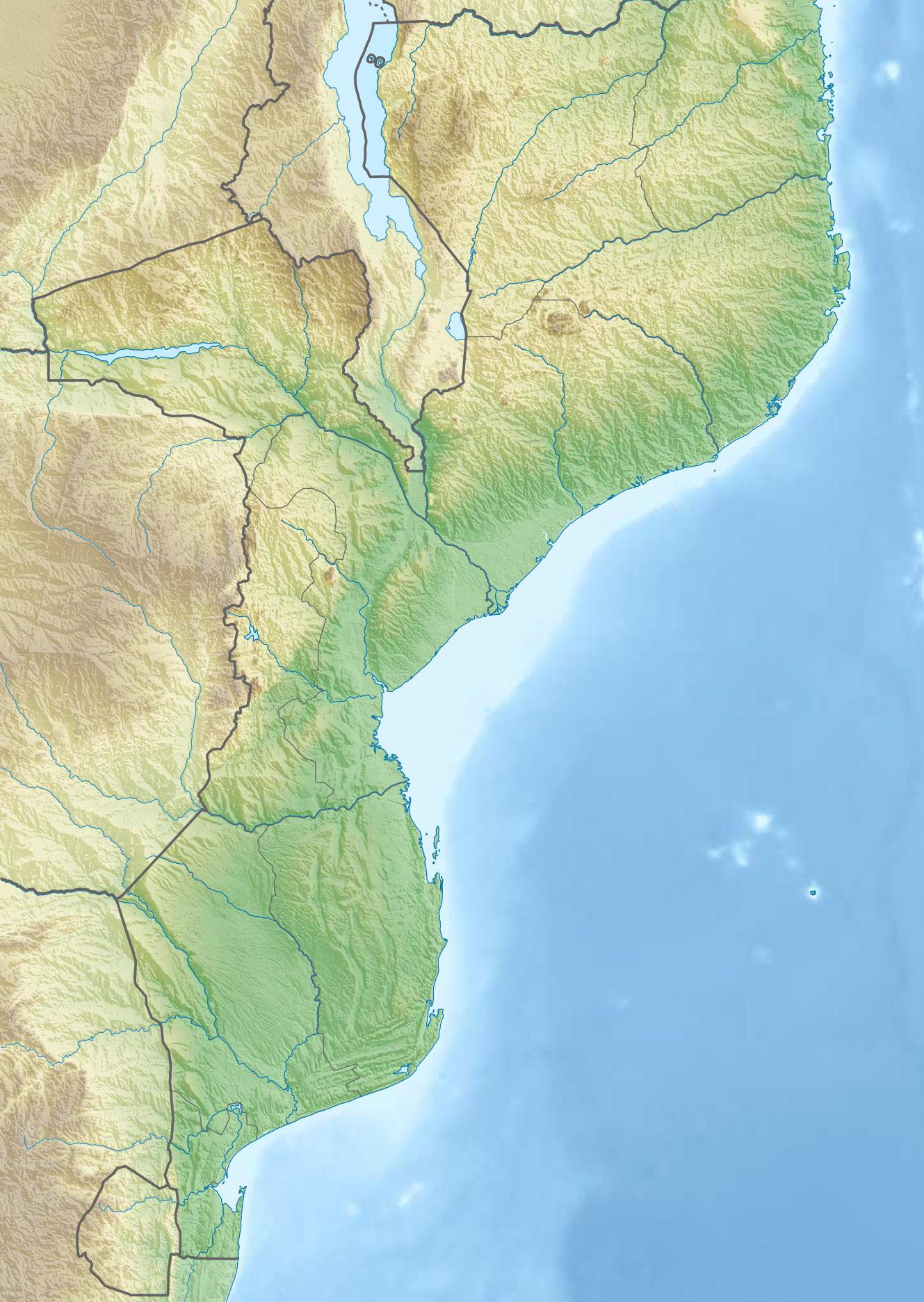
security provider in the south-west Indian Ocean and as a security partner to Mozambique. Since 2020, Indian Navy P8I maritime patrol aircraft, staging through Réunion, have conducted joint patrols with the French Navy in the Mozambique Channel. India is also in the process of constructing an air and naval facility on Mauritius’ remote Agalega island, near the north end of the Channel, improving its ability to cover the region.
Australia will be wary of any new defence commitments in the western Indian Ocean. The Royal Australian Navy has been deployed there for years, interdicting smugglers on the Smack Track. But that presence is being reduced, following an increased focus on areas closer to home, including the Pacific. Australia may need to consider what non-military assistance it can provide.
The Quad and like-minded partners have important interests in stopping the insurgency spilling further across Mozambique’s borders or into the maritime domain. A decade ago, Somalibased piracy was the trigger for the international militarization of the waters off the Horn of Africa. There are good reasons to avoid a similar dynamic in southern Africa.
The crisis should also be seen an opportunity for countries such as France and India to demonstrate their value as security partners in the region. It may also be an opportunity to build cooperation with South Africa, which is increasingly a “swing state” in geopolitical competition. Failure to contain the conflict will leave a vacuum for other actors to fill.
Dr. David Brewster is with the National Security College at the Australian National University, where he specializes in South Asian and Indian Ocean strategic affairs. He is also a Distinguished Research Fellow with the Australia India Institute.
This article is part of a two-year project being undertaken by the ANU National Security College on the Indian Ocean, with the support of the Australian Department of Defence. It appears here courtesy of The Lowy Interpreter and may be found in its original form here.
The opinions expressed herein are the author’s and not necessarily those of The Africa Logistics.





